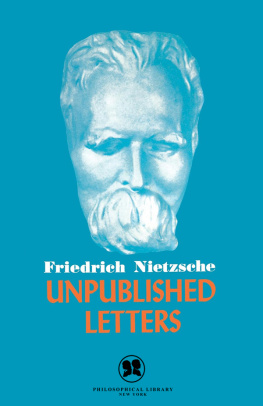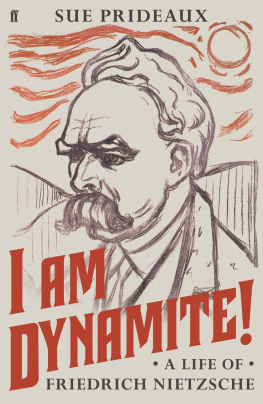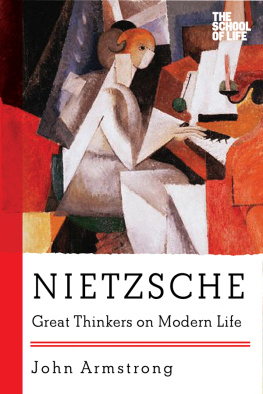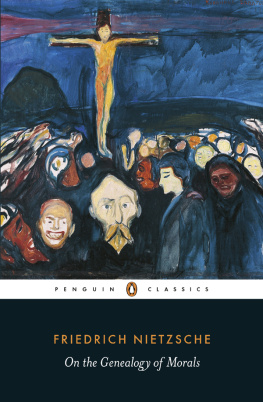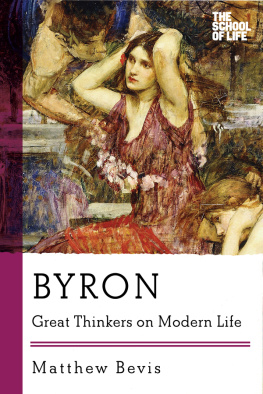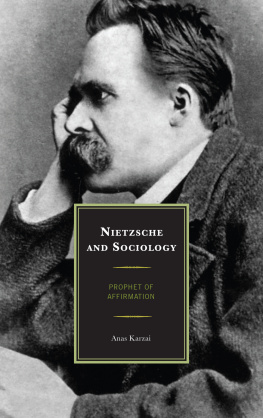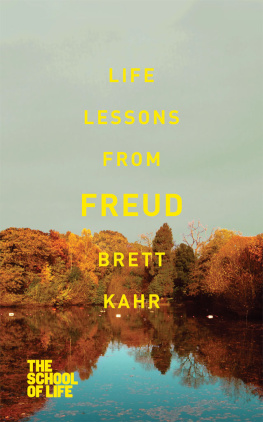
INTRODUCTION

No one is born with the ability to say Nietzsche. One way is to remember that Nietzsche rhymes with teach ya as memorably demonstrated in Monty Pythons philosophers drinking song.
Friedrich Nietzsche (18441900) was one of the most daring and ambitious thinkers of the nineteenth century. He felt that the prevailing values of his society were obstacles to the good life and launched a one-man revolution to transform pretty much everything. He particularly relished attacking what he regarded as conventional pieties or reversing our expectations: he decides, for example, that pity might not always be a good thing or that loneliness is good for us. He likes taking risks and hes not afraid of shocking us.
Nietzsche was born into a deeply religious family (his father, uncle and grandfather were all pastors). He was an extremely conscientious schoolboy and student, especially good at Greek. He so impressed his teachers that in his mid-twenties he was appointed professor of classics at the small University of Basle.
Around the age of twenty he lost his religious faith, arriving at the conclusion that there was no adequate evidence for the existence of God. He became, in some ways, deeply hostile to Christianity. In fact, he seems to have been irritated by almost every aspect of German culture as it then was. But although he was shy and lacking in self-confidence, Nietzsche was filled with a longing to speak intently into the lives of others and to help them in their deepest spiritual needs.
Just as his academic career was taking off he became close friends with Germanys foremost cultural figure, the composer Richard Wagner. Wagner wanted to transform the imaginative life of Europe and Nietzsche was fired with equally grand ideas. He soon felt constrained by the careful, cautious limits of academic life.
In 1870 (when Nietzsche was twenty-six) the recently unified, rapidly industrializing Germany waged a very successful war against France. Nietzsche served as a medical orderly. Under the strategic leadership of Bismarck, Germany entered a period of immense self-confidence and collective pride. This was extremely upsetting to Nietzsche. All his dislike and frustration and contempt for the people around him seemed defeated by their all too obvious material and political triumphs. Its very hard to get much response when you criticize people who think themselves amazingly successful.
In 1879, after a few years of teaching at Basle, Nietzsche retired on a small pension paid by the university. His health was precarious. He spent much time in Italy and Switzerland, often in small towns, living quietly and alone. He broke with Wagner and came to see his former mentor as a symptom of the very spiritual sickness that needed curing.
For a while Nietzsche thought of marriage and family life, but he felt terribly betrayed in his closest relationships with women. His craving for ideal friendship was unsatisfied. But, crucially, he did not repudiate the things he wanted simply because he was unable to attain them himself.
All his life, even though he was single, he believed that marriage could be wonderful. He also believed, despite his lack of both, that power and fame were tremendous honours and great resources. He held good health in the highest esteem, as central to the good life, even though he was frequently ill. He believed in the value of a life of action, despite being cooped up in small lodgings, poring over his books. He asserted the importance of strong, healthy instincts, which he regarded as far more important than his own special skill the acquisition of scholarly knowledge.
Living often alone, in poor health, short of money, Nietzsche wrote a sequence of books that have made him one of the founding figures of the modern world of ideas. But at the time few were paying attention, and he was deeply wounded by the lack of interest his contemporaries showed in his ideas. But somehow he overcame this, to use one of his favourite terms. Instead of giving up he devoted incredible energy and fertility of mind to the elaboration of views that for many years mattered only to him.
In 1889 while he was living in Turin, delighting in the golden autumnal weather and going repeatedly to the opera house to hear performances of Bizets Carmen, he saw a horse being beaten by its driver. He rushed towards the horse shouting: I understand, I understand. He then collapsed and was taken back to his inn.
For the rest of his life he was in the grip of intense delusions. He was sent back to Germany to live with his sister whom he had disliked and distrusted. She established him as a seer he grew a long white beard and sat robed in a white toga. She and her husband edited Nietzsches works so as to align them with German Nationalism and the glorification of military power, grotesquely distorting his clearest intentions. Nietzsche loathed all groups; he was entirely devoted to cultivating the strength and wisdom of individuals.
While suffering from pneumonia he died of a stroke at the end of August 1900.
Trying to do the impossible and sum up his lifes work in a single phrase, Nietzsche said that he wanted to bring about the re-evaluation of all values. Its a striking phrase. But what does it mean?
Nietzsche believed that values are the central concern in life: What do you love? What do you think is important? What do you give priority to? What do you take seriously in your life and what do you brush aside as irrelevant? This is not just a matter of what you say or what you tell yourself that you believe. It is played out in conduct, habit and choices. Someone may say that they care about global justice, but in their day-to-day life this does not actually take centre stage. Values should be lived out in our lives and should shape every aspect of our existence.
Nietzsche thought that the people he lived amongst mostly had the wrong values. They cared about the wrong things and for the wrong reasons.
But what are the right values to have? Through his works, Nietzsche offers us a series of lessons on what he thinks our true concerns should be and what we should hold in high esteem. In other words, he offers lessons for life.
HOW TO FIND YOUR BEST SELF

Sometimes we feel frustrated with who we are. We yearn to be better than we are. But we are not quite sure what this means.
Nietzsche is very sympathetic to this kind of restlessness. He doesnt chide us to count our blessings and remember that things could be a lot worse; or say that in the overall condition of the world we count ourselves as terribly lucky, and that we should pull ourselves together. Instead he invites us to get interested in what is going on when we feel dissatisfied with ourselves. He sees this as a sign of good psychological health. He wants us to get to know this dissatisfaction, take it seriously and do something about it.
Some first shots at imagining a better version of oneself might be: make more money, do more exciting things, get a job you love, move house, find an exit from an unsatisfactory relationship, make some new friends, get a masters degree. These could be very good goals. But notice that they are all external. They are about things we could do or have. What about what it is like to be us: who are we really, in and of ourselves? And why dont we set about it? Why dont we become the people we want to be? Are we too lazy?
This is the question Nietzsche asks in an essay called
Next page

